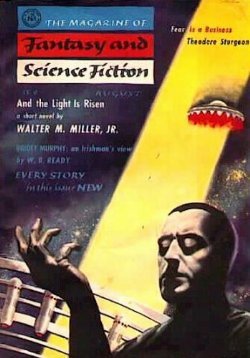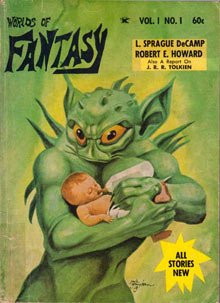Mack Reynolds - The Rival Rigelians
Here you can read online Mack Reynolds - The Rival Rigelians full text of the book (entire story) in english for free. Download pdf and epub, get meaning, cover and reviews about this ebook. year: 1967, publisher: Ace Books, genre: Science fiction. Description of the work, (preface) as well as reviews are available. Best literature library LitArk.com created for fans of good reading and offers a wide selection of genres:
Romance novel
Science fiction
Adventure
Detective
Science
History
Home and family
Prose
Art
Politics
Computer
Non-fiction
Religion
Business
Children
Humor
Choose a favorite category and find really read worthwhile books. Enjoy immersion in the world of imagination, feel the emotions of the characters or learn something new for yourself, make an fascinating discovery.

- Book:The Rival Rigelians
- Author:
- Publisher:Ace Books
- Genre:
- Year:1967
- Rating:4 / 5
- Favourites:Add to favourites
- Your mark:
- 80
- 1
- 2
- 3
- 4
- 5
The Rival Rigelians: summary, description and annotation
We offer to read an annotation, description, summary or preface (depends on what the author of the book "The Rival Rigelians" wrote himself). If you haven't found the necessary information about the book — write in the comments, we will try to find it.
The Rival Rigelians — read online for free the complete book (whole text) full work
Below is the text of the book, divided by pages. System saving the place of the last page read, allows you to conveniently read the book "The Rival Rigelians" online for free, without having to search again every time where you left off. Put a bookmark, and you can go to the page where you finished reading at any time.
Font size:
Interval:
Bookmark:
The Rival Rigelians
by Mack Reynolds
Foreword
Hardly had man solved his basic problems on the planet of his origin than he began to fumble into space. Barely a century had elapsed in the exploration of the Solar System than he began to grope for the stars.
And suddenly, with an all but religious zeal, mankind conceived its fantasy dream of populating the galaxy. Never in the history of the race had fervor reached such a peak and held so long. The question of why was ignored. Millions of Earth-type planets beckoned and with a lemming-like desperation humanity erupted into them.
But the obstacles were frightening in their magnitude. The planets and satellites of Sol had proven comparatively tractable and those that were suited to man-life were quickly brought under his dominion. But there, of course, he had the advantage of proximity. The time involved in running back and forth to the home planet was meaningless and all Earths resources could be thrown into each problems solving.
But a planet a year removed in transportation or even communication? Ay! this was another thing and more than once a million colonists were lost before the Earthling could adapt to new climates, new flora and fauna, new bacteriaor to factors which the most far-out visionary had never fancied, perhaps the lack of something never before missed.
So, mad with the lust to seed the universe with their kind, men sought new methods. To a hundred thousand worlds they sent smaller colonies, as few as a hundred pioneers apiece, and there marooned them, to adapt, if adapt they could.
For a millennium each colony was left to its own resources, to conquer the environment or to perish in the effort.
A thousand years was sufficient. Invariably it was found, on those planets where human life survived at all, man slipped back during his first two or three centuries into a state of barbarism. Then slowly he began to inch forward again. There were exceptions and the progress on one planet never exactly duplicated that on another, however the average was surprisingly close to both nadir and zenith, in terms of evolution of society.
In a thousand years it was deemed by the Office of Galactic Colonization such pioneers had largely adjusted to the new environment and were ready for civilization, industrialization and eventual assimilation into the rapidly evolving Galactic Commonwealth.
Of course, even from the beginning, new and unforeseen problems manifested themselves
from Man In AntiquityPublished in Terra City, SolGalactic Year 3,502I
The Co-ordinator looked out over the eighteen seated before him and said, I suppose Im an incurable romantic. You see, I hate to see you go.
Academician Amschel Mayer and Dr. Leonid Plekhanov sat slightly before the other sixteen. They were both in their early middle years and offset one another. Mayer was thin and high pitched, nervous and impatient; his manner was often that of a harried grade school teacher who disliked children. His colleague was heavy, slow and dour and he looked more the sergeant of infantry than a top political scientist.
Now, both showed their puzzlement, as did the balance of the team behind them.
The Co-ordinator added softly, Without me.
Plekhanov kept his massive face blank. It wasnt for him to be impatient with his superior. Nevertheless, the ship was waiting, all stocked and ready for burn off. He stirred his bulk in his chair.
Amschel Mayer said, It would be a pleasure if you could accompany us, Citizen. Inwardly, he realized the other mans position. Here was a dream coming true and Mayer and his fellows were the last thread that held the Co-ordinators control over the dream. When they left, half a century would pass before he could again check developments.
The Co-ordinator took a deep breath and became more businesslike. Very briefly, I wish to go over your assignment. Undoubtedly redundant, but if there are any questions, no matter how trivial, this is the last opportunity to air them.
What possible questions could there be at this late date? Plekhanov thought. He shifted his bulk again.
Behind him, Technician Jerome Kennedy whispered to the girl next to him from the side of his mouth, Zen, I thought he was having us in for a last minute blast. A few snorts of guzzle.
Natalie Wieliczka said, Shhhh.
The department head was swiveling slowly back and forth in his desk chair as he talked. You are the first of many, many such teams. The manner in which you handle your task will effect mans eternity. Obviously, since upon your experience we will base our future policies on interstellar colonization. His voice lost volume. The position in which you find yourself should be humbling.
It is, Amschel Mayer agreed. Plekhanov nodded his head. Someone behind murmured further assent.
The Co-ordinator nodded too. However, the situation is as near ideal as we could hope. Rigels planets are all but unbelievably Earthlike. Almost all our flora and fauna have been adaptable. Certainly our race has been.
These two are the first of the seeded planets. Almost a thousand years ago we deposited small bodies of colonists upon each of them. Since then, we have periodically checked from a distance, but never intruded.
His eyes swept the whole group, resting finally on the leaders. No comment or questions thus far?
Mayer said, when no one else could find a question, This is one matter that has always surprised me. The colonies are so small to begin with. How could they possibly populate a whole world in one millennium?
The Co-ordinator nodded and said, Man adapts, Amschel. Have you studied the development of the United States in early history? During her first century and a half the need was for population to fill the vast lands wrested from the Amer-Inds. Families of eight, ten and twelve children were the common thing, and much larger ones were not unknown. And the generations crowded one against another. A girl worried about spinsterhood if she reached seventeen unwed. But in the next century? The frontier vanished, the driving need for population was gone. Not only were drastic immigration laws passed, but the family rapidly shrunk until by mid-Twentieth Century the usual consisted of two or three children, and even the childless family became increasingly common.
Mayer frowned impatiently. But still, a thousand years. There is always famine, war, disease
Plekhanov snorted patronizingly. Forty to fifty generations, Amschel? Starting with a hundred colonists? Where are your mathematics?
The Co-ordinator said, The proof is there. We estimate that each of Rigels planets now supports a population of nearly one billion.
To be more exactNatt Roberts spoke up from the rear of the groupsome nine hundred million on Genoa, seven and a half on Texcoco. His voice was as trim and neat as his physical appearance. However, it was information everyone present already possessed.
Mayer smiled wryly, I wonder what the residents of each of these planets call their worlds. Hardly the same names we have arbitrarily bestowed.
Probably, each call theirs The World, the Co-ordinator smiled. After all, the basic language, in spite of a thousand years, is still undoubtedly Amer-English. However, I assume you are familiar with our method of naming. The most advanced culture on Rigels first planet is to be compared to the Italian cities during Europes feudalistic years. We have named that planet Genoa. The most advanced of the second planet is comparable to the Aztecs at the time of the Spanish conquest. We considered Tenochtitlan, but it seemed a tongue twister, so Texcoco, the sister city of the Aztecs, is the alternative.
Modernizing Genoa, Mayer mused, should be considerably easier than the task of semi-primitive Texcoco.
Font size:
Interval:
Bookmark:
Similar books «The Rival Rigelians»
Look at similar books to The Rival Rigelians. We have selected literature similar in name and meaning in the hope of providing readers with more options to find new, interesting, not yet read works.
Discussion, reviews of the book The Rival Rigelians and just readers' own opinions. Leave your comments, write what you think about the work, its meaning or the main characters. Specify what exactly you liked and what you didn't like, and why you think so.



